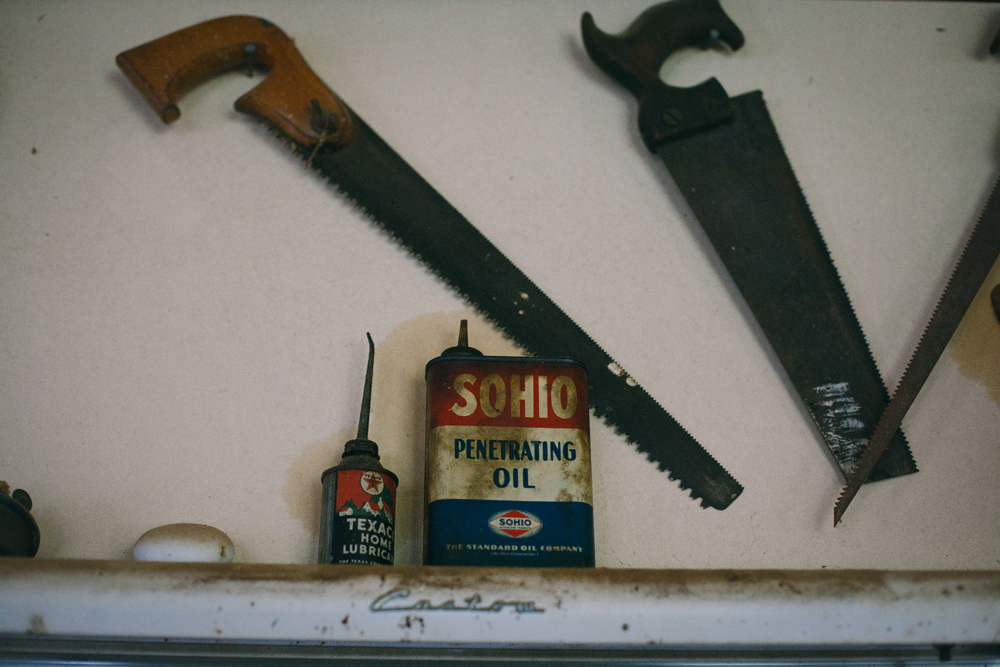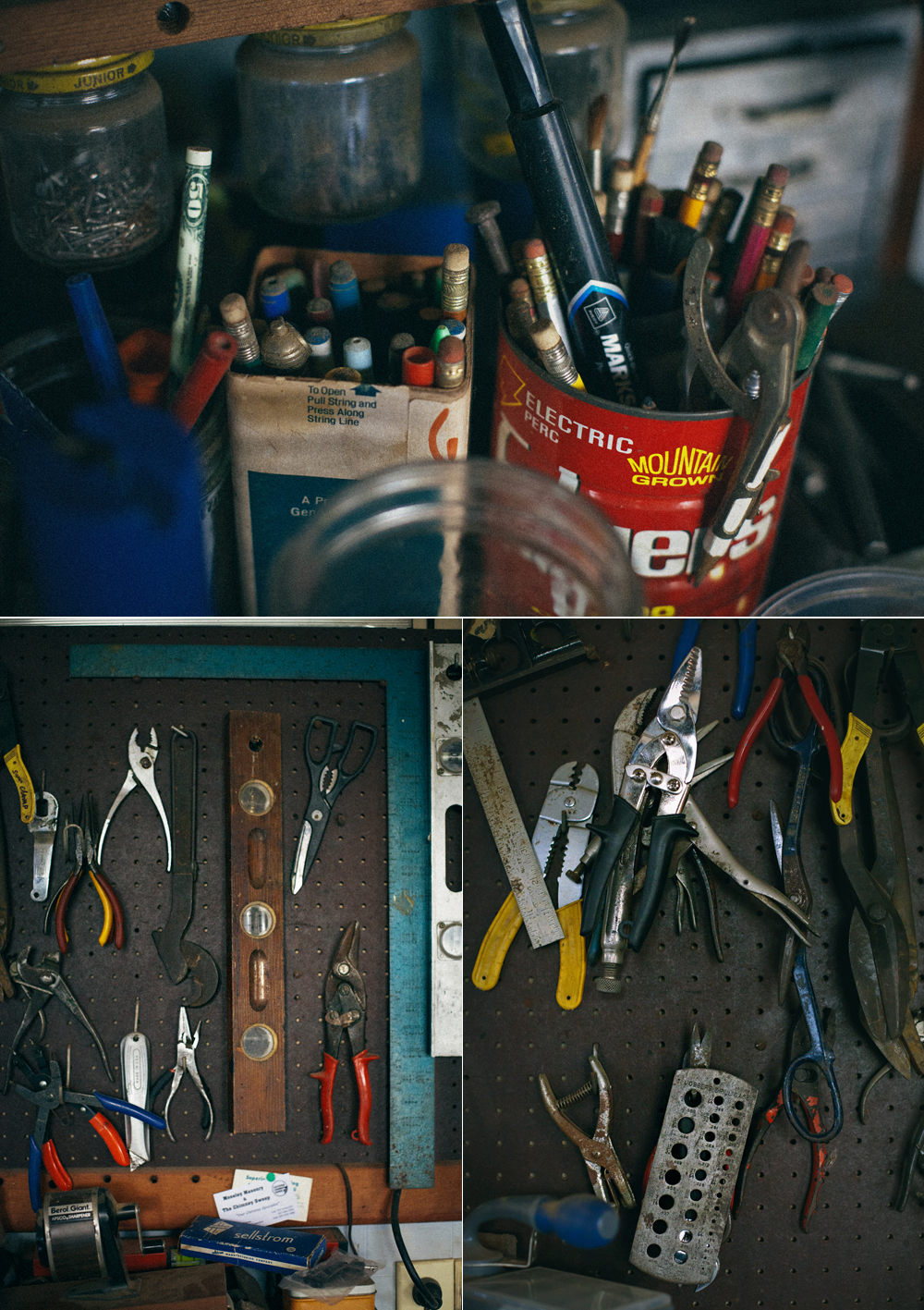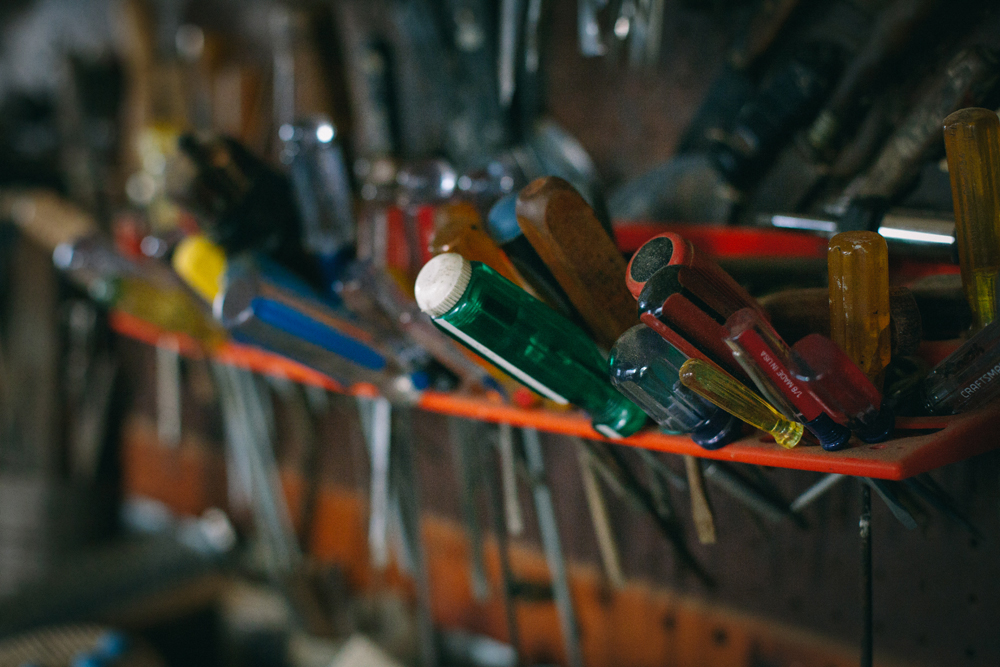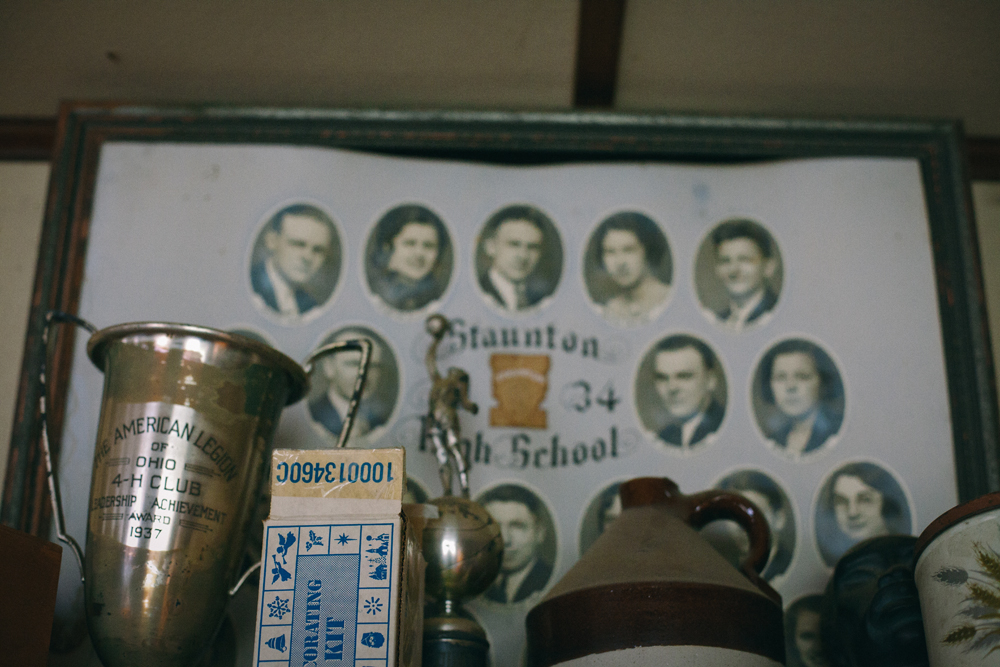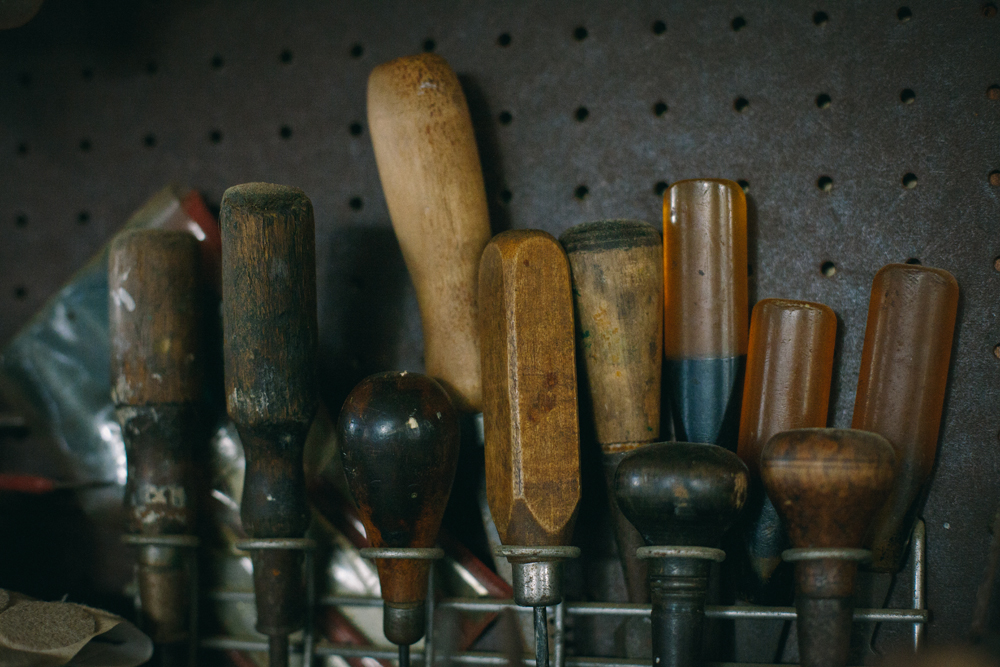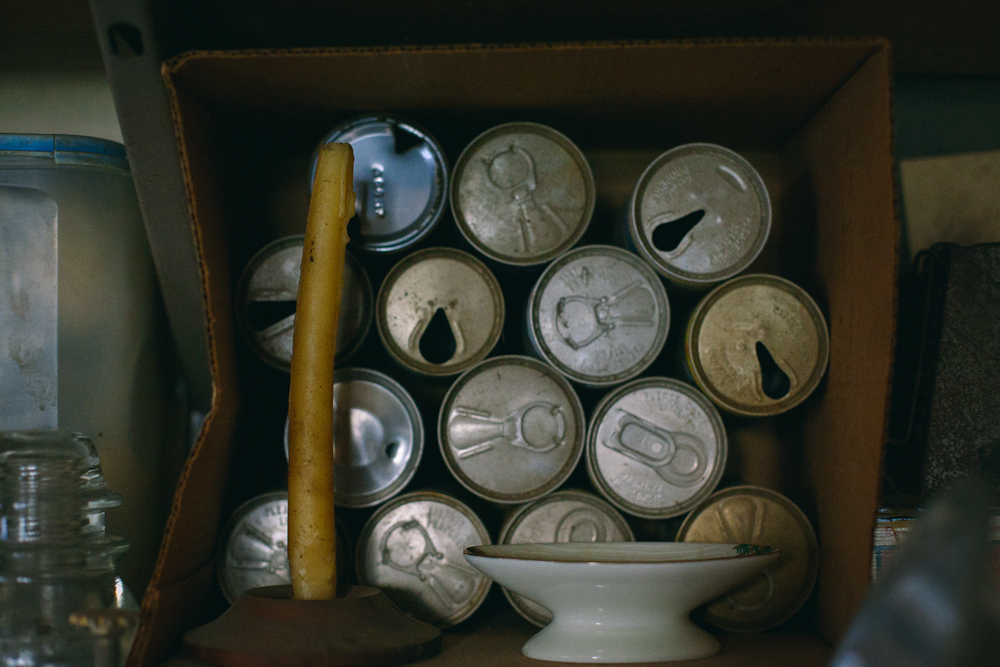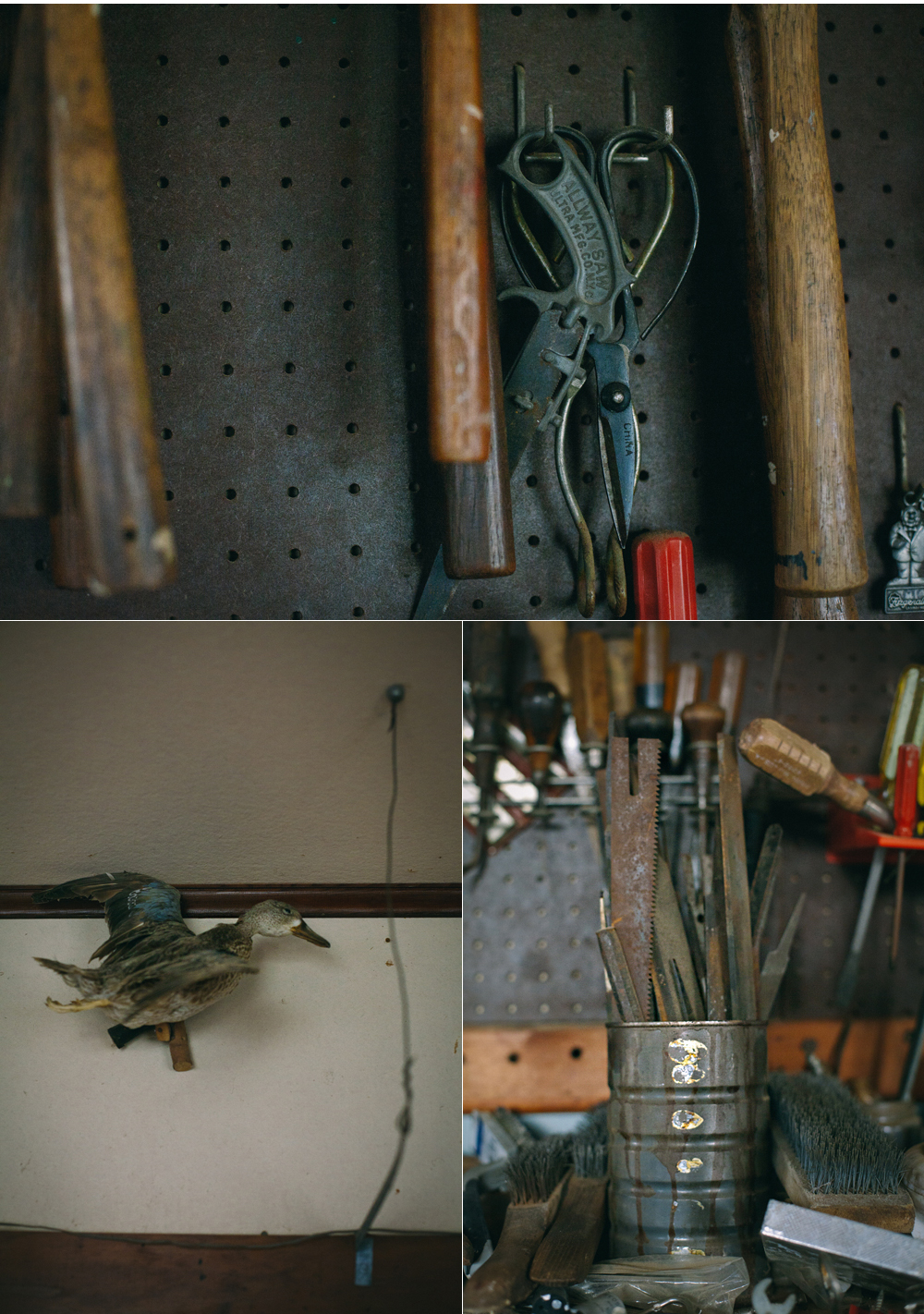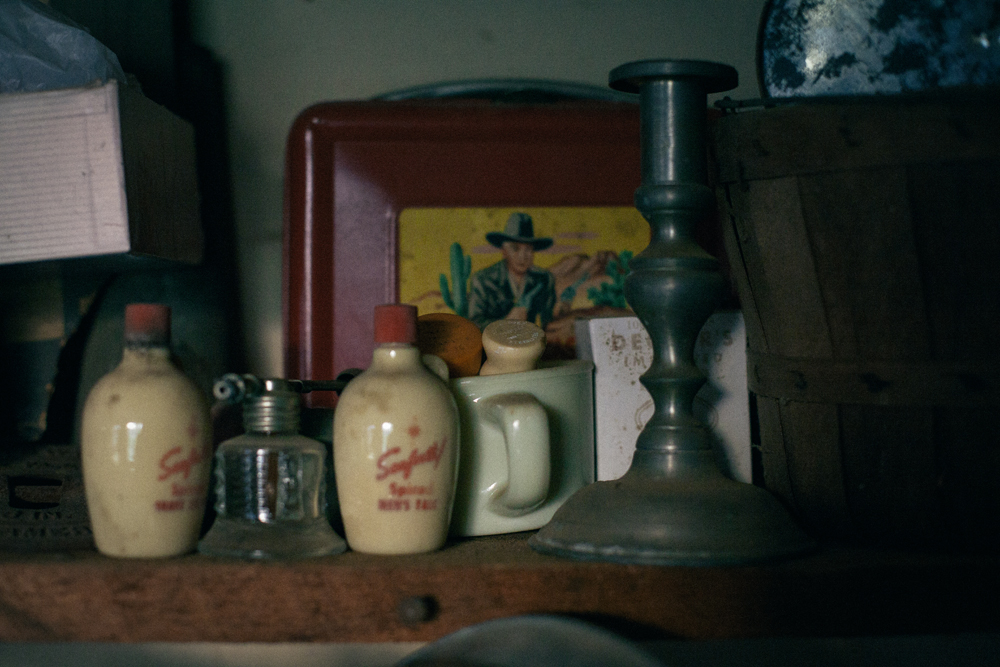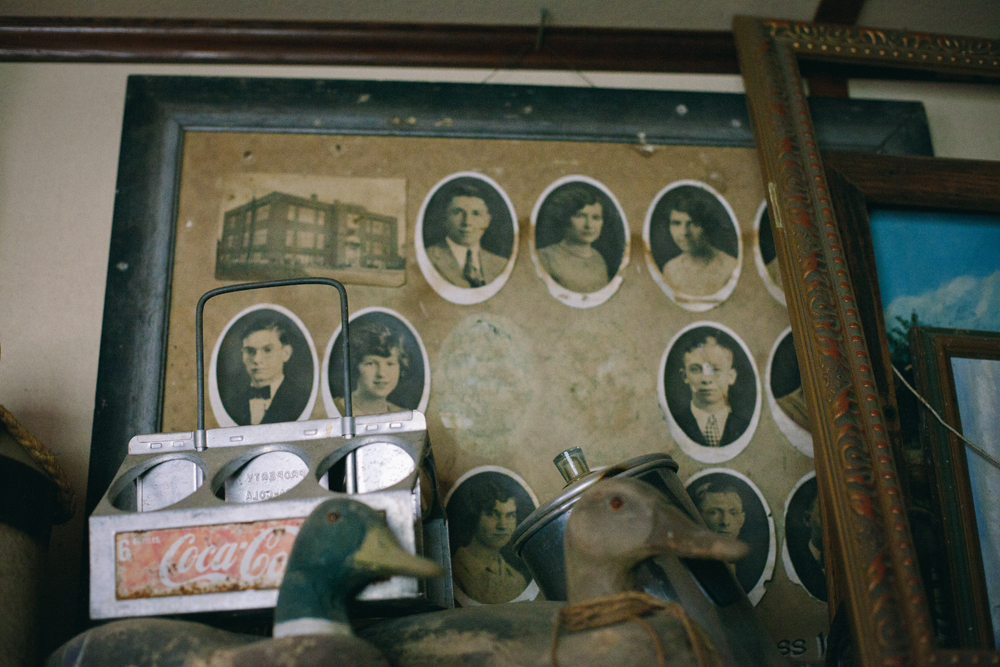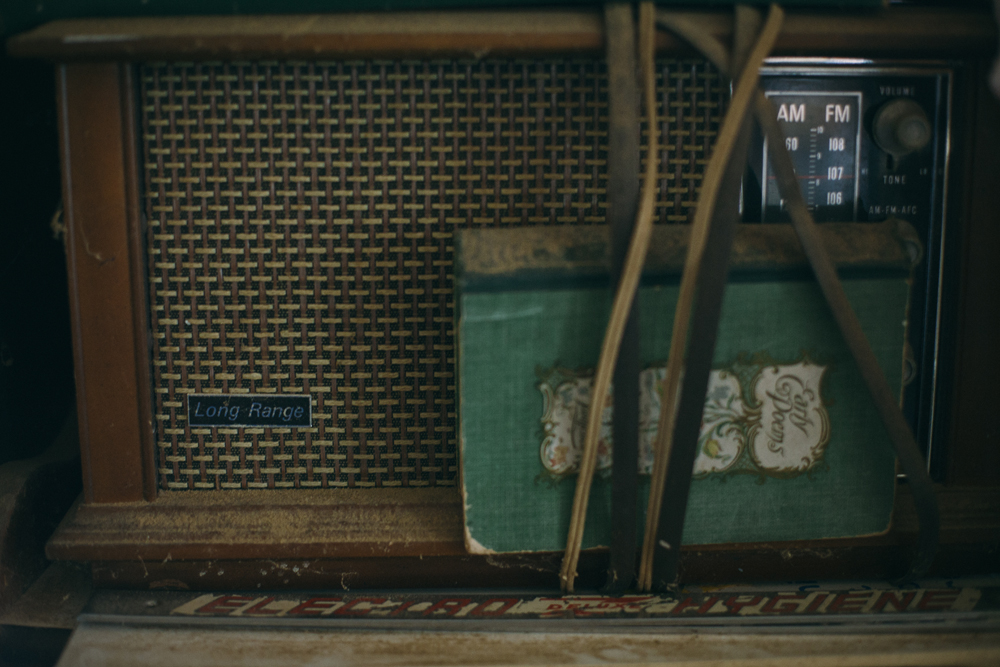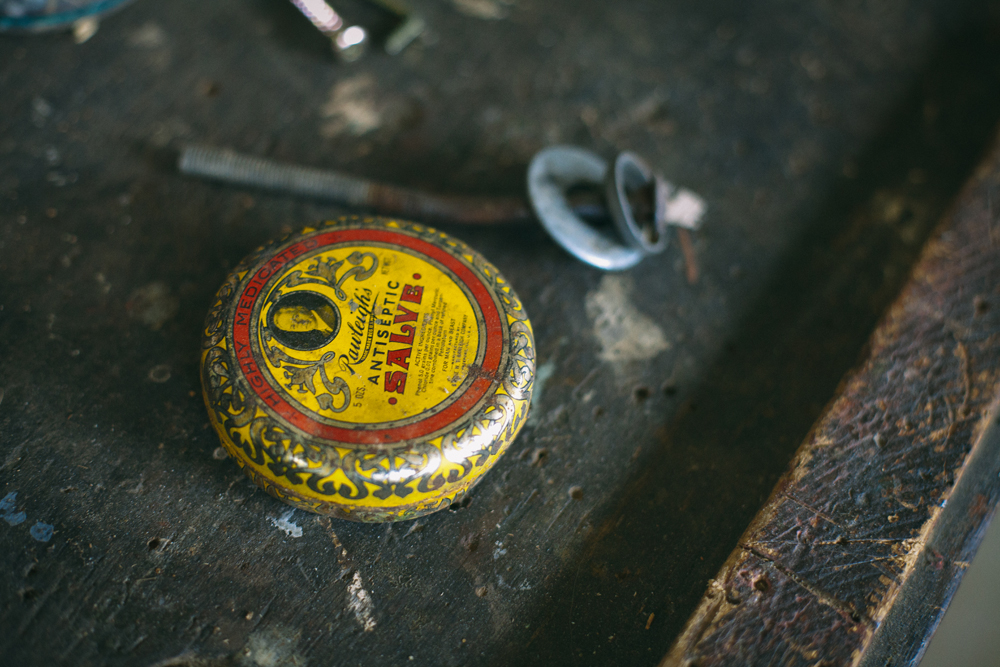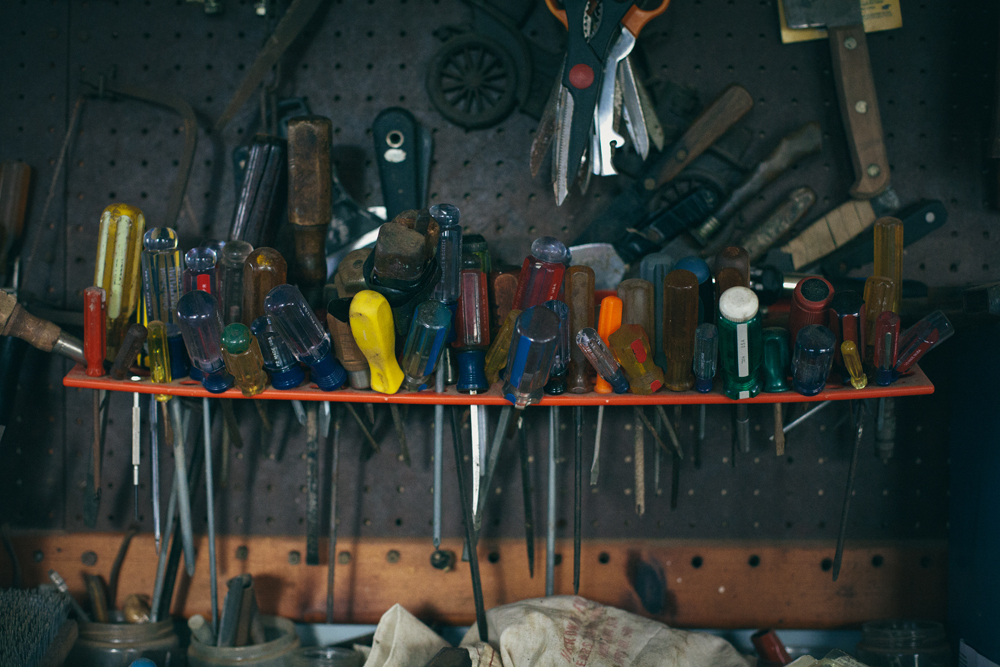Early on a Saturday morning I stood in the “Shop” on my parent’s farm. The Shop got it’s name because before it became my father’s temple of problem solving, it was my grandfather’s store. Roscoe owned Roeth Appliances and it was on this bench where his repairs, deliveries, record keeping, and transactions took place. The workbench was built for the bygone Hayner distillery, a whiskey maker in Troy Ohio, and somehow made it’s way to the family farm. The stone distillery building still sits in town and is now known as the Hayner Cultural Center. I’ve always felt that name is fitting for a house that once brewed and barreled the White Dog for the good people of Miami County.
Now in it’s third chapter of life, it sits covered with tools like English Ivy growing over cemetery walls, guarding it’s inhabitants silently and selflessly. Offering itself as pure utility, until itself is an object of reverence and beauty. I stood in front of the workbench and admired function over form. I paid respect to process over product. I stood and saw the workbench that morning not through a sentimental lens, as it could be easy for me to do, but objectively. A studied lesson and testament; layer upon layer, to thinking and doing. Year upon year the accumulation of implements for creation, modification, of adaptation, and improvisation made not to be admired, but to be used. I saw the pieces, the parts, and the effigies of what was valued and what was needed and what was reached for time and time again. Arranged not to make any statement beyond intrinsic ergonomics. Instruments and objects unnoticed for their own form but meant to create form – displayed not conscious of style and without awareness, but rather instruments only placed where they were last needed as a train of thought moved onto the next tool, the next idea, only momentarily paused in their eternal service.
